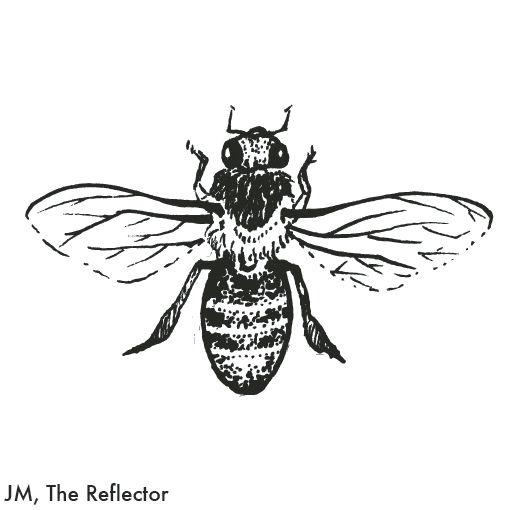Mississippi State University will host a presentation on the history of beekeeping in Mississippi by Assistant Extension Research Professor Jeff Harris at 7 p.m. on Thursday in the Clay Lyle Entomology Building.
The Mississippi State Bug Zoo, which is housed in the entomology building, will open for everyone ages four and up beforehand, beginning at 5:30 p.m.
Harris said he will begin the talk by telling of the early European colonists arriving in America, with honeybees in tow, and lead into the modern beekeeping industry in Mississippi. In the 1920s, Harris said, Mississippi had perhaps the largest beekeeping industry in the world.
Harris will also cover a few important families involved in the industry.
The Stover family brought fame to Mayhew, Mississippi, when they bought an existing beekeeping operation nearby. The business became one of the nation’s largest suppliers of live honeybees, and the family even started their own post office to ship them.
Harris said bees are essential to our environment’s history and its future. He said the species’ continued health is critical in preserving agriculture in Mississippi and elsewhere.
Harris said everyone needs an education in protecting honeybees because they are so often ignored.
Before Harris came to MSU, he worked 15 years as a bee breeder for the USDA Agricultural Research Services Honey Bee Breeding Lab in Baton Rouge, Louisiana.
There, he was involved in developing lines of bees with high levels of Varroa Sensitive Hygienic, or VSH, behavior. He earned his doctoral degree in insect physiology and a Master’s degree in entomology at Louisiana State University.
Harris’ interest in bees began when his uncle, who was a beekeeper, took him to visit one of his hives.
“We wore no veils, and he cut me a sliver of honeycomb to chew,” Harris said. “From that moment onward, I fell in love with honey and bees.”
Harris said a variety of actions can be taken to improve the health of Mississippi’s bee population, including reducing pesticide use, which would benefit of all pollinators.
When it comes to plants with long blooming periods requiring insecticide, applying pesticides at night can help reduce the risk of harming honeybees. Harris said neem oil and safe soap are better possible alternatives to traditional, harmful insecticides.
“The History of Beekeeping” is the most recent event in a series celebrating Mississippi’s bicentennial. To honor 200 years of statehood, a number of presentations on state art, music and culture have been held on and off-campus.
The official date of Mississippi’s bicentennial is Dec. 10. Leading up to this day, prominent galleries can be found in the Old Main Academic Center, featuring many easily recognizable state artifacts. There is a dolphin skeleton, Mississippi’s state water mammal, a live bee colony, Mississippi’s state insect, and a recording of “Go, Mis-sis-sippi” the official state song.
The galleries also include “Symbols of our State: A Walk Through Mississippi Industry and Culture” which provides insight into Mississippi’s more mechanical side, with historic cotton clothing, woodworking tools and even the original edam cheese mold used here at MSU.
“We really made an effort to address as many aspects of Mississippi history as possible because part of our reason for planning the events was to highlight the diversity of our collections,” event organizer Amy Moe-Hoffman said.
The on-campus museum will be open until Nov. 29. Every event that is part of the bicentennial celebration is free.
The bicentennial celebration was brought to life with a grant from the Mississippi Humanities Council, through support from the Mississippi Department Authority.
The private nonprofit corporation specializes in serving other nonprofit and educational programs with funding it receives from Congress, through the National Endowment for the Humanities.
Hoffman said the council’s goal is to teach Mississippians more about their history, culture and selves. When the MSU Museums and Galleries Committee learned the Humanities Council was giving grants for public programs about the bicentennial, the group felt it was in a special position to develop a celebration for a diverse audience.
“The History of Beekeeping,” like many of the events in the bicentennial programming, will provide insight into an industry many do not know helped shape our state.








